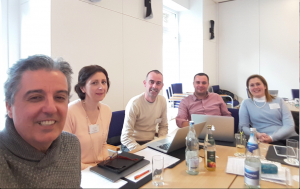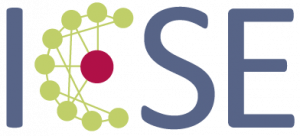MaSDiV
MaSDiV stands for Supporting Mathematics and Science teachers in addressing Diversity and promoting fundamental Values.
MaSDiV (2017-2020) is a high-level research and evaluation project involving leading STEM education institutes from across Europe and 11 ministries of education. The MaSDiV partners will develop and implement a course for STEM teachers to better equip them to promote science and mathematics literacy for all students (including disadvantaged students from diverse cultural and social backgrounds) together with the learning of fundamental values in multicultural settings. Further, we will rigorously evaluate this course using a multi-method research design. In this policy experimentation measure (funded within Erasmus+ Key Action 3), the aim is to scale-up successful measures across Europe.
Aims of MaSDiV
The aim of the MaSDiV project is to develop a research-based, quality-controlled and tested measure – a teacher professional development course to promote inclusive STEM education – that will be broadly implemented and scaled-up across Europe. We will develop a course according to latest research and standards regarding PD quality and base it on a well-researched STEM education concept – inquiry-based learning (IBL). In MaSDiV, we will further further develop and expand IBL in suitable ways to promote science and mathematics literacy among all students under the conditions of diverse and multicultural classrooms. A truly innovative feature of this course is that it links STEM education and IBL to the learning of fundamental values and intercultural learning.
The PD course will comprise three modules that will be available as free and open resources and include supplementary offers (such as suitable classroom tasks for teachers, guidelines for teacher educators giving the course, etc.):
- IBL as an approach for addressing achievement-related diversity
- IBL in realistic, relevant contexts and
- IBL in multicultural settings
The PD course aims to develop teachers’ competence to practice inclusive science and mathematics education for the learning benefit of all students, regardless of their cultural or socio-economic backgrounds. The main target groups are lower secondary school teachers in general education across Europe.
We will use a pre-post design to experimentally test the developed measure in six countries. Our multimethod evaluation design reverts to quantitative and qualitative proceedings. Evaluation will allow for a reliable assessment on the measure’s effects, as well as on routes to scaling-up the measure.
Leading science education research institutes who are members of the International Consortium for STEM Education, together with European ministries of education are developing the measure.
The project runs from2017 to 2020 with its final year devoted to initiating a scaling-up process for the measure so as to ensure that the PD course will be implemented to the widest possible extent in national educational settings. MaSDiV’s cooperation with 11 European ministries of education and its connections to relevant national and European networks and communities in STEM education from research, policy and practice ensures that the project will maximize its impact and thus, maximize its benefits for a high-quality, socially relevant, just and inclusive STEM education.
Continuing Professional Development (CPD) for Teachers of Mathematics and Science
The CPD course offered by MaSDiV will support teachers in
- delivering inclusive education for all students,
- building active citizenship and
- incorporating intercultural learning in mathematics and science classrooms.
Our approach provides an evidence-based way to tackle current challenges in STEM education: underachievement; linking science competences with social and civic competences and effectively supporting teachers as they deal with increasing social, cultural and competence-related diversity in their classrooms.
Science and mathematics are vital prerequisites for active participation in society and belong to the eight key competences (EU framework for key competences, EC 2007). However, across the EU, 17% of 15-year-olds underachieve in science. In mathematics, that figure rises to 22% – and even to 36.6 % among students with low socioeconomic status (ET 2020). 13.7 million young people – those with migration backgrounds are particularly concerned here – are not in employment, education or training (Youth Report 2015). These young people are less involved in social and political life, and at risk of exclusion and marginalisation (ibid.), which in turn is a risk to our societies. Increased migration enhances the need for inclusive education that promotes learning in groups with different competence levels and cultural backgrounds and ‘disadvantaged’ students (see also Eurydice 2016).
Science also has social, cultural and ethical dimensions (e.g. the decision for or against genetic engineering in agriculture in developing countries). Therefore, science learning should be used to promote cultural awareness, critical thinking, decision making and consequently, social and civic competences (EC 2007). However, conventionally, science education has focused on the ‘learning of science’ (Hazelkorn et al. 2015). This means pure science detached from societal implications, as opposed to learning ‘of and about science’. The latter fosters young peoples’ understanding of the nature, applications and implications of science and thus, they learn principles and competences vital in democratic, pluralistic and increasingly multi-cultural European societies. In this sense, science education is also citizenship education as envisaged by the Paris declaration 2015 and in the European Education and Training 2020 program.
Delivering inclusive STEM education linked to citizenship education and intercultural learning is, however, not a trivial task. Consequently teachers need support (EU-WG MST 2013, EU-WG PD 2013, Arjomand et al. 2013). Here, we find shortcomings in Europe. Experts have marked out a need to substantially improve the quality of STEM PD offers (Hazelkorn et al. 2015) and mismatches exist between teachers’ expressed need for training in suitable approaches and the course offerings available (Eurydice 2015).
A lack of adequate PD offers and an increased need for inclusive STEM education approaches (due to increased diversity in classrooms) concerns all European countries. In many European nations, policy has recently recognised the need to better support science teachers in dealing with the above named challenges in science education. MaSDiV’s measure provides an approach suitable to jointly address these challenges.
The Project Consortium and Partners
The project Consortium consists of 13 institutions. It is comprised of university-ministry tandems in six countries that will jointly develop and test the measure in 2017/2018. An ‘evaluation institution’ is in charge of a thorough evaluation of the measure. The project Coordinator is the International Centre for STEM Education at the University of Education Freiburg.
- International Centre for STEM Education (ICSE), University of Education Freiburg, Germany (Project Coordinator)
- Ministry for Education, Youth and Sports Baden-Wuerttemberg, Germany
- University of Nicosia, Cyprus
- Ministry of Education and Culture, Cyprus
- University of Jaen, Spain
- Spanish Ministry of Education, Culture & Sport, Spain
- University of Malta, Malta
- Ministry of Education and Employment, Malta
- Utrecht University, Netherlands
- Ministry of Education, Culture and Science, Netherlands
- Hacettepe University, Turkey
- Turkish Ministry of National Education, Turkey
- IPN – Leibniz Institute for Science and Mathematics Education at Kiel University, Germany (evaluation institution)
Via the European Impact Board further 5 University-Ministry tandems and experts/networks from European STEM education are linked to the project. They will support the dissemination, scaling-up and broad use of the measure across Europe after its positive evaluation.
- Vilnius University, Lithuania
- Education Development Centre (UPC) established by and acting under the Ministry of Education and Science of the Republic of Lithuania
- Norwegian University of Science and Technology, Norway
- Ministry of Education and Research, Norway
- University of Innsbruck, Austria
- Federal Ministry of Education, Austria
- University of Hradec Králové, Czech Republic
- Ministry of Education, Youth and Sports, Czech Republic
- Agueda Gras-Velazquez, European School Net, Belgium
- Dr. Manuela Welzel-Breuer, University of Education Heidelberg, Germany
- Ruta Mazgelyte, Education Development Centre, Lithuania
- Prof. Dr. Michele Artigue, Université Paris Diderot, France
The Malta Team
In Malta, MaSDiV is led by the University of Malta (UM) working in collaboration with the Ministry for Education and Employment (MEDE).
The University team is made up of Dr Josette Farrugia, Dr Michael Buhagiar & Dr James Calleja.
The team from the Ministry is made up of Ms Mariella Galea – Education Officer (Mathematics Secondary) & Mr Stephen Bezzina – Education Officer (Diversity, Learning to Learn & Cooperative Learning).

Disclaimer
The creation of resources has been co-funded by the Erasmus+ programme of the European Union under grant no. 2016 – 2927 / 003 – 001. The European Union/European Commission is neither responsible for the content nor liable for any losses or damage resulting of the use of these resources.
COPYRIGHT
© MaSDiV project (grant no. 2016 – 2927 / 003 – 001) 2017-2020,
CC-NC-SA 4.0 license granted.
The information of MaSDiV is distributed under the Creative Commons Attribution-Noncommercial-Share Alike License as described at: http://creativecommons.org
The creation of resources has been co-funded by the Erasmus+ programme of the European Union under grant no. 2016 – 2927 / 003 – 001.
The European Union/European Commission is neither responsible for the content nor liable for any losses or damage resulting of the use of these resources.



